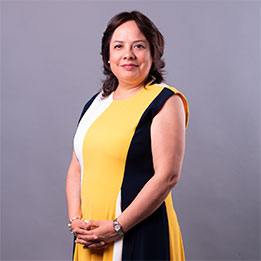

General counsel | Banco BBVA Perú


Anabelí González
General counsel | Banco BBVA Perú
Focus on revolutionising the legal market
The traditional legal profession has already seen plenty of change and will continue to witness it. The conventional study of law begins with history, especially in Latin America, where lawyers between the ages of 30 and 40 were introduced to high volumes of legal dogmatics and terminology in the Latin language that had to memorised. Then followed an incorporation into an endless world of legal concepts only understandable by lawyers, and that to a considerable extent, contributes to isolating lawyers from other professions that do not have access to that world.
Today, the legal profession, in addition to continuing to be a profession that seeks the harmonious coexistence of people, is also interrelated with diverse branches of knowledge which have been impacted by technology. Fields of study have emerged with the intersection of law and technology and given greater dynamism to the evolution that every lawyer, especially in-house, must show. I do not believe that lawyers are going to be expendable due to technological progress, but I do believe that we are more than obliged to accelerate our change from the conventional way of thinking about the law. Precisely put, we must learn and unlearn more easily.
Another topic that is not very old, especially in Peru, is compliance, which is closely linked to legal advice and, in turn to planning, which focuses on the prevention of risks of legal non-compliance in any corporation. The compliance officer is already the right hand of many Boards of Directors, and their presence will be increasingly essential, as the business becomes more sophisticated due to technological progress. The world has changed in the past two years.
The world as an in-house counsel of a major bank in Peru has not only changed but also presented interesting challenges. The first challenge was to adapt yourself to the change itself. As lawyers, most of us were initially reluctant to accept that our work could be performed differently with the same (or even higher) accuracy than before. The “terror” of working without paper had to be replaced with the practicality of maintaining a day-to-day operation with limited resources and with clients accessing our services at distances.
The pertinent questions were about how to back-up every transaction? How to change a system that works with printed documents, signatures, public deeds? On the other hand, banking became an essential service in Peru. The government established different bonuses to be distributed through the banking system; so, the bank could not stop. At the same time, the pressure of regulation started to increase, some of it evolving from the new reality of electronic banking and some with a focus on regulating pricing. In such an environment, in-house counsel must not lose perspective.
The bank had to adapt to the times and as lawyers we need to help with guidance on where the business can and cannot go. Our team had to focus on three teams: regulations (which changed daily or even twice a day), special projects (related to specific opportunities created during the pandemic) and business as usual. The lessons we learned relate to the ability to organise, empathise and lead. If you have a group of 40 or 400 people, the main issue in a crisis is to allocate your resources according to the tasks that are required and the expertise at hand. For instance, during the first five months of the pandemic, the litigation teams were not able to work due to a lockdown of the courts. However, they helped the BAU and regulation teams.
I remember, someone told me that a crisis is a good learning experience for the next one. I hope that next time I need to apply any of the lessons of 2020 there would be no human cost involved. In fact, I think that most of the lessons I learned could be applied to my daily life too.